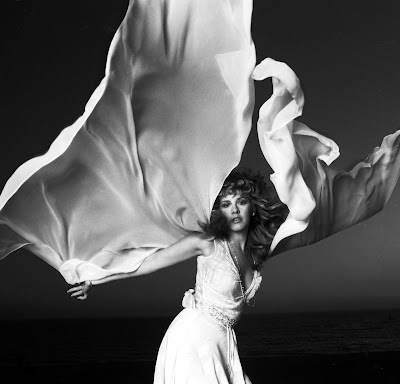The year is 1981, the place, Vallirana, a small town in Barcelona. Jordi Solá -Dei Pei-, Miguel González -No-, Tere González, Siscu and Jaime start to play together. They are only kids. Desechables was influenced by bands like the New York Dolls, Ramones, Iggy Pop and, above all, the Cramps. In fact, they came to be considered the Spanish Cramps because of the fact that both bands lacked a bassist. At the beginning, Siscu, Jaime and Tere were all sharing vocal duties, but soon Tere became the only singer in the group. At the age of 14. Tere González became Tere Desechable.
By the summer of 1983, as a trio and with a few songs developed from the first sessions in which they covered The Cramps, Jordi, Miguel and Tere played at the II International Rock Competition in Lyon. There they shared the stage with Killing Joke, among others. The experience turned out to be a success. So much so, that they were invited to continue playing around Paris and Rennes. Things were getting really good for the band. But the bad luck that was to accompany them throughout their career, made their first and most devastating act of presence here. Just when they were getting ready to record an LP at the mythical Rock Ola in Madrid -the demo "Maqueta" (Anarchi, 1982) and the EP "La Oración" (Tres Cipreses, 1983)-, Miguel, the guitarist, died when he tried to rob a jewelry store with a toy gun, shot by the jeweler himself in Villafranca del Penedés. Desechables ceased to exist.
The following year saw the release of the album "Golpe tras Golpe" (Desechables, 1984), which was put together using songs from French live shows and a performance at the Diario Pop party on Radio 3. The back cover includes a drawing of the band members made by Miguel. A little later Desechables return to the stage. Miguel is replaced on the guitar by Jordi's brother, Marcelo -El Enano-, who hadn't missed a single rehearsal and had been playing since 1984 with the group, so he knew the songs perfectly. Carlos also enters and they are established as a quartet.
The band recorded their live album at the end of December 1984 in the Rock Ola hall and it is called "Buen Ser-Vicio" (Tres Cipreses, 1985) and the provocative cover leaves no one indifferent. However a mistake in the pressing of the vinyl meant that the recording lacked capturing the forcefulness and rawness of that concert. In any case, the first and only print run was quickly sold out.
In 1986 Desechables recorded their first studio LP under the orders of Angel Altolaguirre. The album, "Nadaquentender" (Radio Nacional de España, 1987) would not be released until the following year, and was preceded by the single "Ábreme". The single anticipated what was to come: a good production work but one that perhaps overshadowed the quartet's characteristic pointy sound. Poor distribution made the record a flop. In 1987 Jack joins th band as a bass player and Altolaguirre becomes a permanent member, although shortly after he starts his personal project Angel y Las Güais and is replaced by Raul. That same year they recorded the album "Amor Pirata" (Recordings Interferences, 1988). Just when Desechables were beginning to sound on the radio and to have some fame, the band broke up. They would do so after their performance at the KGB in Barcelona, on November 17, 1988.
In 1986 Desechables recorded their first studio LP under the orders of Angel Altolaguirre. The album, "Nadaquentender" (Radio Nacional de España, 1987) would not be released until the following year, and was preceded by the single "Ábreme". The single anticipated what was to come: a good production work but one that perhaps overshadowed the quartet's characteristic pointy sound. Poor distribution made the record a flop. In 1987 Jack joins th band as a bass player and Altolaguirre becomes a permanent member, although shortly after he starts his personal project Angel y Las Güais and is replaced by Raul. That same year they recorded the album "Amor Pirata" (Recordings Interferences, 1988). Just when Desechables were beginning to sound on the radio and to have some fame, the band broke up. They would do so after their performance at the KGB in Barcelona, on November 17, 1988.











